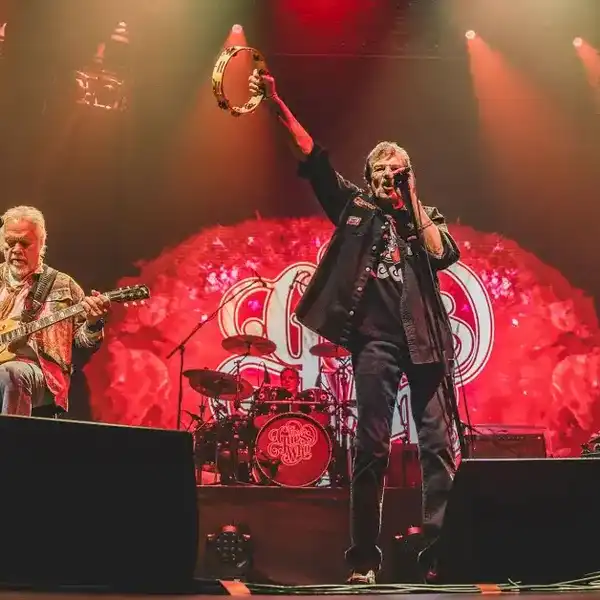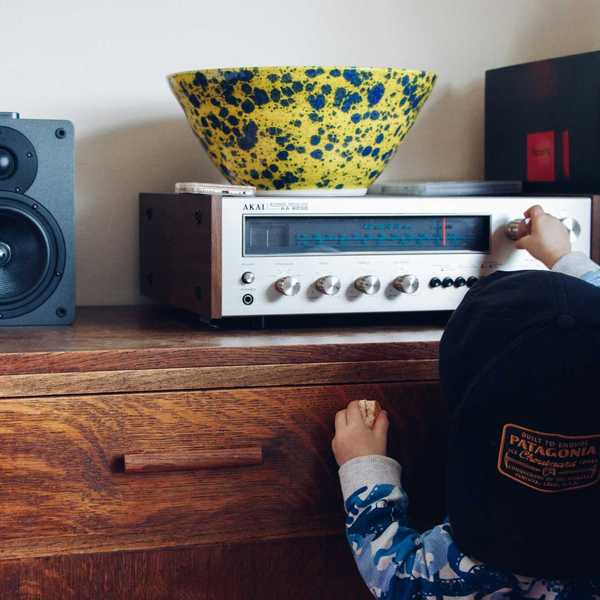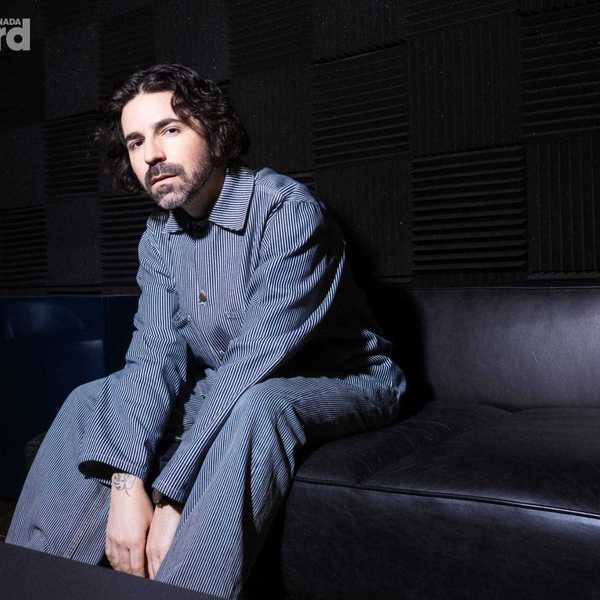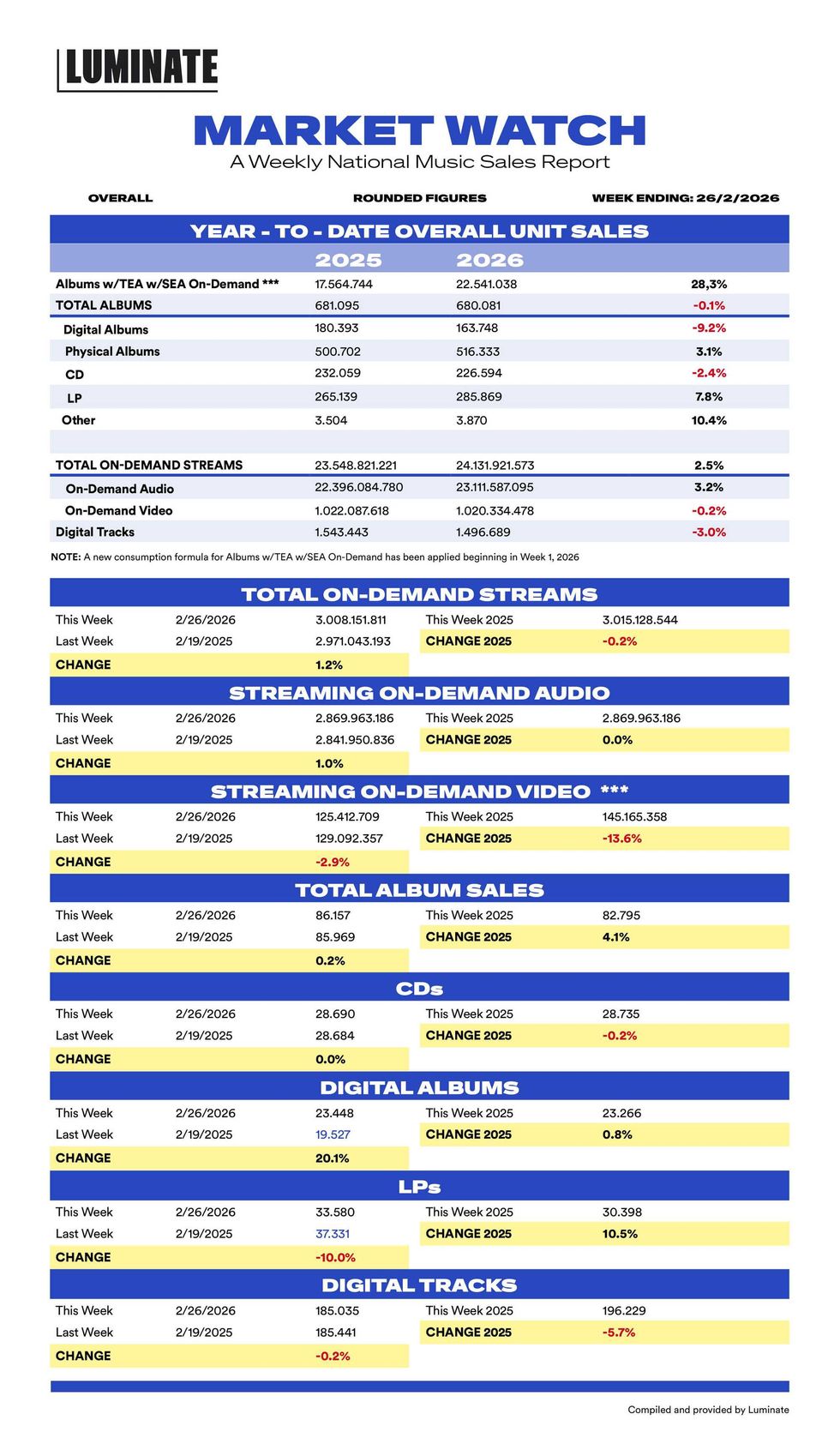A Conversation With The Tragically Hip Manager Jake Gold Before His Induction into the Canadian Music Industry Hall of Fame
The veteran manager who's worked with The Hip, The Watchmen, The Pursuit of Happiness and others will be honoured at CMW's Canadian Live Music Industry Awards on June 4.
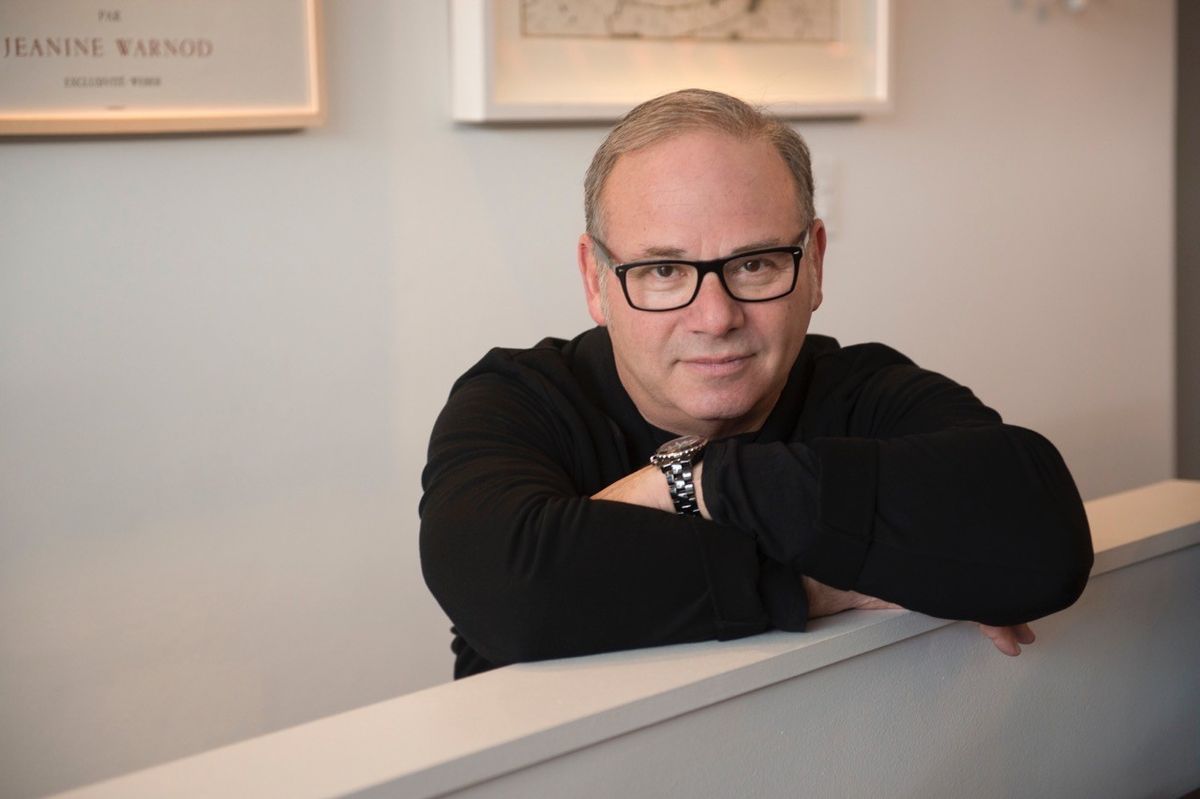
Against the backdrop of the Toronto skyline, Jake Gold, the manager behind The Tragically Hip, will be inducted into the Canadian Music Industry Hall of Fame on June 4, 2024. The ceremony will take place at the Westin Harbour Castle at the 2024 Canadian Live Music Industry Awards as part of Canadian Music Week (CMW).
Retiring CMW president Neill Dixon praises Gold as an adept manager and influential figure in shaping iconic bands. Most notably, Gold helped break The Tragically Hip early in their career, reuniting with them after Gord Downie's death to lead them into a posthumous new act. They've stayed surprisingly active with Gold overseeing projects like the Saskadelphia EP and an upcoming Amazon documentary series.
Gold's career began in 1981 and gained momentum through strategic negotiations and alliances, leading to the creation of Management Trust with Allan Gregg in 1986. This partnership played a crucial role in The Tragically Hip's rise from local stages to national prominence, earning diamond certifications comparable to The Beatles. Later, during his time as a judge on Canadian Idol, he evaluated talent with the same skill that contributed to The Hip's success. He also managed bands like Crash Karma and The Pursuit of Happiness.
Gold's career achievements include multiple Manager of the Year awards and leadership roles on the boards of CIMA and Music Managers Forum Canada. I caught up with Gold while he was recovering from recent double knee replacement surgery to talk about his eventful career.
How do you feel getting inducted into the Canadian Music Industry Hall of Fame?
Some people think of the Hall of Fame as putting you out to pasture, but I'm still active and doing things. It's an honour, as it recognizes my contribution to the industry, but it's as much an honour for me to be amongst my peers in management, many of whom I looked up to [and who] became my friends. It is essential because those are my people, other managers, agents, promoters and people who I spend a lot of my time with in the business. Not to diminish record companies and their involvement in my career, but the agents and promoters were a big part of, at least, my philosophy.
As a music manager, are you a tough negotiator on behalf of your artists?
I think that's my job. I never saw it as a tough negotiator. I always saw it as doing the right thing for my clients. I have been doing this since I was 23 at a full-time job. It's the only real job outside of my short stint on television with Canadian Idol. I've been a manager my whole life, and even then, I still managed artists while doing the TV show.
My father passed away when I was young, when I was 17, and he always wanted me to be a lawyer, so maybe something rubbed off. Every artist is their own business, and they're the owners. They're the board of directors. Then, they hire a CEO to run the company. And that's what the manager is. The manager is the CEO, and the manager brings in the right agent, record company, and all those other supports for the organization. The CEO must be in charge and ensure they represent the board of directors the best they can.
To this day, I have a bi-weekly meeting with the guys in The Tragically Hip, and we call it a board of directors meeting because I want everyone to take it seriously. When we have a meeting every two weeks, we go through everything on the agenda and take notes. Everyone gets the meeting notes from the week before, and it's done very professionally because I think it needs to be treated that way.
For a band that's not actively recording or touring, there are still a lot of projects on the horizon for The Hip, including back catalogue releases.
We have so many things going on right now. There's a documentary coming, and there's a new box set coming. This year, the band is celebrating its 40th anniversary. They're the Record Store Day Ambassadors. A live record [came] out on vinyl and cassette on Record Store Day in April.
Do you still get out as much to hear live music?
This group isn't touring. I have a young guy who works with me, Ryan Hefford, and he's brought in some young clients. I also work with Paul Langlois [of The Tragically Hip]'s solo project. I go out when he's playing, and I work with The Pursuit of Happiness, and when they do gigs. I go out sometimes to sell merch because I want to do something instead of just sitting there watching the show. I enjoy engaging with the fans, seeing what they're saying and hearing their stories. They're the ones paying everyone's bills.
Can you describe the impact The Hip's performance had on your emotions the first time you saw them?
You can't put charisma into words. It exuded dynamism and charisma. At that point in my career, I'd been a manager for about five years. I thought I knew where the bar was, and then I saw them, and I was like, this is a new bar. This is a new level of charisma, communication, and how they played as a unit. It was very, very strong and dynamic.
There was an audience listening to mostly original music at Larry’s Hideaway at Carlton and Jarvis. They were opening for a Rolling Stones clone band. They played for 40 minutes because, back then, it was all cabaret. It was all seats with tables. At the end of their set, the whole place stood up and cheered. They were seeing an original version of what the Rolling Stones were: two guitars, bass and drums with a charismatic singer. It was astounding.
How did you persuade them to entrust you with the responsibility of managing their affairs?
My partner Allan Gregg and I took them to The Pilot Tavern that night in Yorkville, right after the set, and we just agreed to work together. I'd had experience in the business fractionally. I had an act signed by RCA called New Regime. I knew some record people, but I also learned many of the agents, promoters and club owners. You didn't put music up on Spotify and let it happen back then. You had to go out and earn it. They would go out and earn it.
Many clubs were cover clubs. You'd play three nights at one place and three nights in another, or a week in a place, and the strippers during the day. The bands were in pretty shitty hotel rooms. It was Guelph and Kitchener and everywhere you could, anywhere from Montreal to Windsor. We were playing the 401. Occasionally, it was a real college gig where things take off. They were already playing to 750 to 1000 people a night in [their hometown[ Kingston. We could play Queens and Western University. Many of those kids live in Toronto, so we could play Toronto on Thanksgiving weekend and have a packed crowd. We figured it out. We had a plan.
Did you also establish a connection with an agency?
In the beginning, I did it myself. I called the clubs myself. Several middle agents facilitated the owner's club booking process. I knew a lot of intermediate agents. You would have to submit your set list, and we had a lot of covers. They wanted cover bands. We would put the originals as Doors' unreleased songs, Stones b-sides, so it didn't look like there were any originals. The people loved watching them play, especially doing three nights. By the third night, the venue packed and everyone had a great time. The club owners were happy because people were drinking beer, and that's all they cared about. They're there to sell beer.
How do you typically respond when people inquire about the responsibilities of a manager?
I always feel my main job is to spot charisma. You can fix all the other stuff. You can work on songs. Some people are successful songwriters, but they don't have the charisma to communicate. But you can't make up charisma. I've never been the packager. I've never [said] we'll get someone good-looking, dress them up in clothes, surround them with dancers, and get other people to write songs for them. That's never been my thing. I look for people with a sense of self who know who they are and what they are.
We're working with a young artist named Ethan Surman, who Ryan Hefford brought in. We're doing everything independently, and this guy plays every instrument, sings and writes. He's got that charismatic thing. When I signed The Watchmen, it was the same thing as when I watched them play live, and the band had that thing. I worked with them for 14 years. When we signed Crash Karma, same thing. You know a star when you see one.



